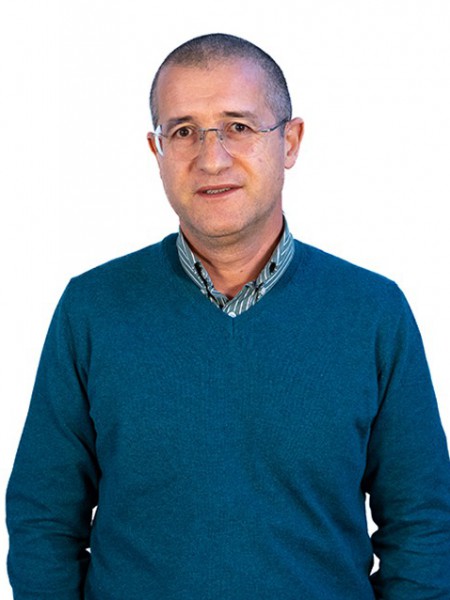abstract
The effect of the preferential orientation of supporting bacterial cellulose (BC) nanofibrils on the conductivity of composite proton conducting electrolytes with poly(4-styrene sulfonic acid) (PSSA) is reported. Data obtained by impedance spectroscopy show that the in-plane conductivity at 40% relative humidity (RH) is more than half order of magnitude higher than that measured through-plane, indicating significant discontinuity of proton transport at the PSSA/BC interface. The difference becomes less than 20% in nearly saturated conditions (98% RH), demonstrating the key role of water in ensuring proton transport through those interfaces. The negative impact of the conductivity anisotropy in fuel cell performance is mitigated due to operation in wet conditions and fuel cell tests of PSSA/BC-based membrane electrode assemblies under humidified hydrogen/air gradients at room temperature yield 40 mW cm(-2) at 125 mA cm(-2), which is amongst the highest values reported for a biopolymer-based electrolyte. It also results from the presented investigation that conventional electrode preparation used for thermoplastic polymer electrolytes must be modified in order to ensure proper adhesion to BC-based MEAs and thus to lower polarization losses. (C) 2017 Elsevier Ltd. All rights reserved.
keywords
POLYMER ELECTROLYTE MEMBRANES; THROUGH-PLANE; COMPOSITE MEMBRANES; EXCHANGE MEMBRANES; PEMFCS; TRANSPORT; PROGRESS
subject category
Electrochemistry
authors
Gadim, TDO; Loureiro, FJA; Vilela, C; Rosero-Navarro, N; Silvestre, AJD; Freire, CSR; Figueiredo, FML
our authors
Groups
G3 - Electrochemical Materials, Interfaces and Coatings
G4 - Renewable Materials and Circular Economy
Projects
CICECO - Aveiro Institute of Materials (UID/CTM/50011/2013)
Bacterial Cellulose Membranes for Proton Exchange Fuel Cells (EXPL/CTM-ENE/0548/2012)
acknowledgements
This work was developed within the scope of projects CICECO-Aveiro Institute of Materials, POCI-01-0145-FEDER-007679 (FCT Ref. UID/CTM/50011/2013) and UniRCell (Ref. SAICTPAC/0032/2015, POCI-01-0145-FEDER-016422), financed by national funds through the FCT/MEC and when appropriate co-financed by FEDER under the PT2020 Partnership Agreement, and CelFuelCel (EXPL/CTM-ENE/0548/2012). The Portuguese Foundation for Science and Technology (FCT) is also acknowledged for a post-doctoral grant to C. Vilela (SFRH/BPD/84168/2012), and research contracts under Investigador FCT to C.S.R. Freire (IF/01407/2012) and F.M.L. Figueiredo (IF/01174/2013).








